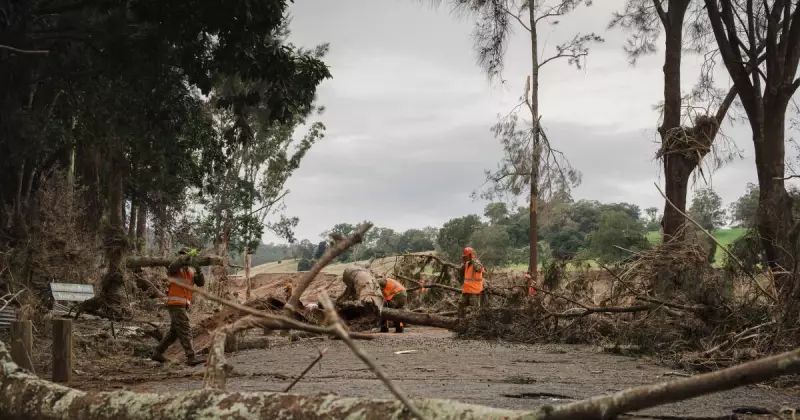
Australia's regional security faces a grave threat from climate change, with government inaction effectively signing a death notice for human security across the Asia-Pacific, according to security experts.
Climate Threats to Regional Stability
Retired Admiral Chris Barrie, former chief of the Australian Defence Force, has issued a stark warning about the security implications of climate change. Through his work with the Australian Security Leaders Climate Group, Barrie assesses that Australian governments have left the nation poorly prepared to face this existential threat.
The recently released National Climate Risk Assessment confirms Australia's lack of preparedness for climate shocks already in motion. Barrie emphasises that licensing new fossil fuel projects will further diminish both our security and regional stability.
Climate disruption has already contributed to civil wars and government collapse in vulnerable nations like Syria and Sudan, forcing millions to seek safe haven. In Australia's immediate region, climate heating will have profound consequences for food security and could force hundreds of millions of people from their homes.
Specific Regional Impacts
Sir David King, former UK chief scientist, predicts that by 2050, Vietnam's major river deltas could be almost entirely inundated by typhoons and storm surges. Saltwater intrusion would destroy rice production in the world's third-largest rice exporter.
In Bangladesh, a one-metre sea-level rise would inundate 20% of the country and displace 30 million people. Across South and central Asia, waves of unbearable heat will combine with chronic water shortages as meltwater from the Himalayas and Tibetan Plateau diminishes.
Security analysts warn that within the next 20 years, cascading climate impacts will drive political instability, increase national insecurity, and fuel regional and international conflict.
Domestic Consequences and Fossil Fuel Expansion
Recent research by Australian scientists provides clear evidence that the government's approval of new gas and coal export projects will adversely affect both regional and national security. The research quantifies how these projects expose millions to unprecedented heat outside the human climate niche where societies have historically thrived.
As one example, Woodside's Scarborough Project in Western Australia is estimated to produce 876 million tonnes of greenhouse gases over its lifetime. This would result in approximately 516,000 people globally exposed to unprecedented heat and 356,000 left outside the human climate niche, leading to significant mortality.
The near-unliveable heat will dramatically affect more than a billion people in the Asian tropical zone, impacting their capacity to live and grow food. This will trigger massive population movements within nations, across borders, and toward temperate zones like Australia.
Domestically, new fossil fuel projects push northern Australia and military bases into heat regimes where both personnel and equipment face greater operational difficulties.
Barrie concludes that with the world likely to exceed the Paris Agreement's 2-degree upper limit around 2040, Australia's continued licensing of fossil fuel exports represents a failure of national duty that imperils both current and future generations.






